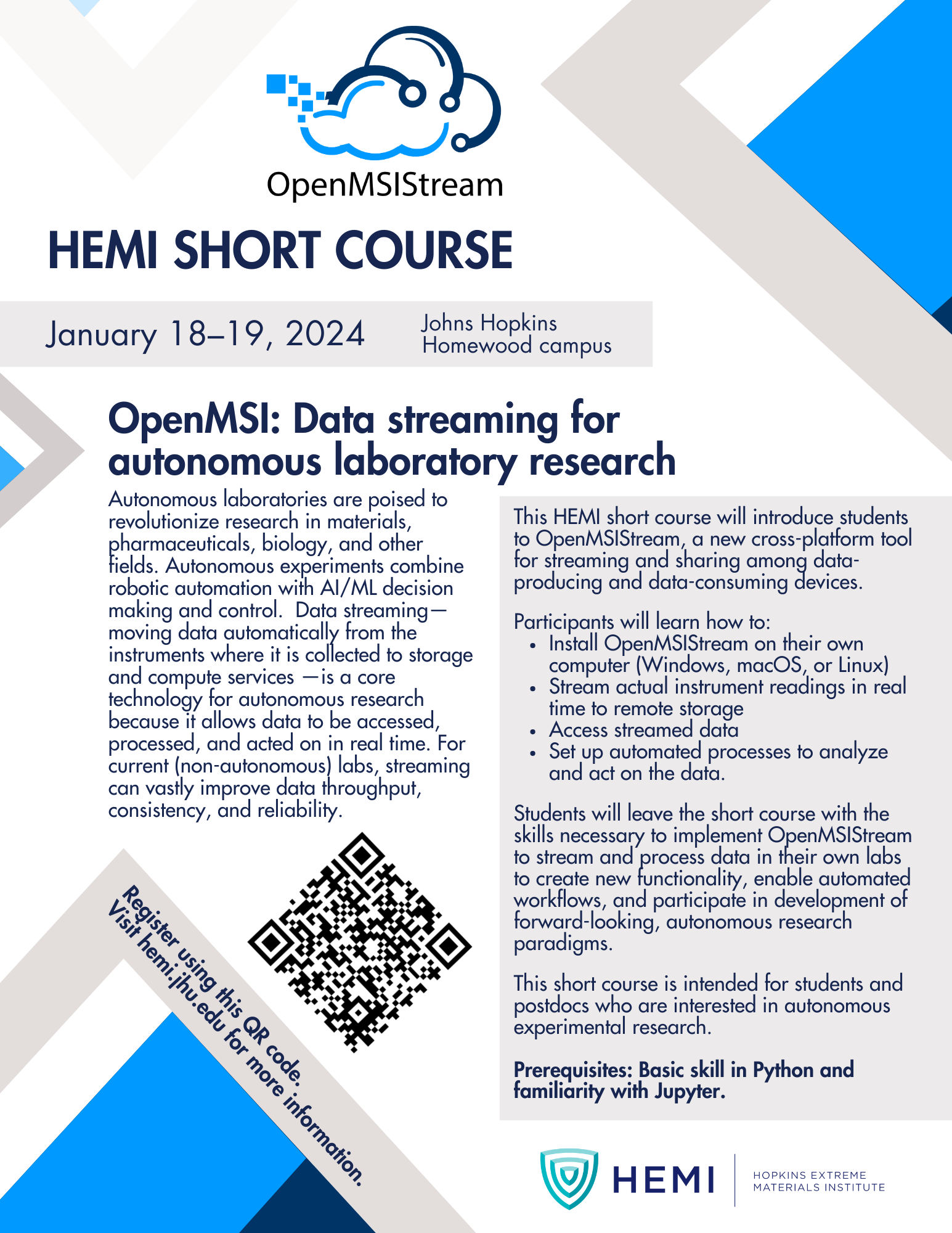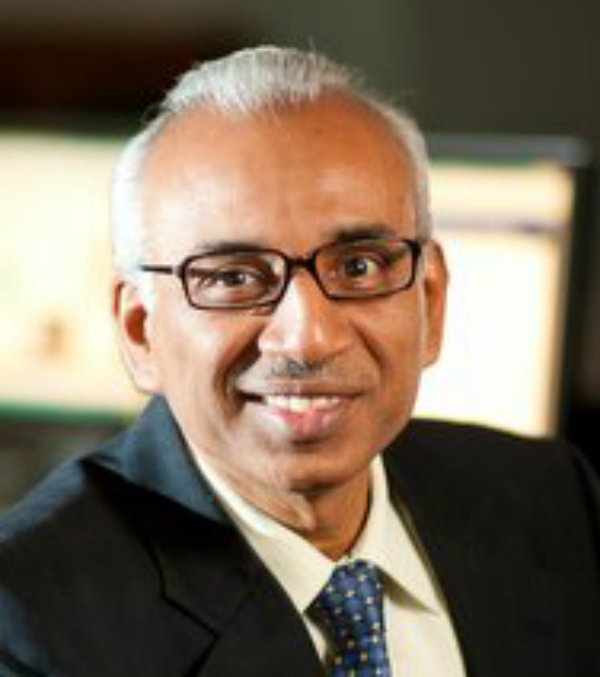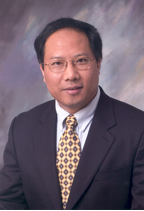Autonomous laboratories are poised to revolutionize research in materials, pharmaceuticals, biology, and other fields. Autonomous experiments combine robotic automation with AI/ML decision making and control. Data streaming — moving data automatically from the instruments where it is collected to storage and compute services —is a core technology for autonomous research because it allows data to be accessed, processed, and acted on in real time. For current (non-autonomous) labs, streaming can vastly improve data throughput, consistency, and reliability.
HEMI Short Course – OpenMSI: Data streaming for autonomous laboratory research
This HEMI short course will introduce students to OpenMSIStream, a new cross-platform tool for streaming and sharing among data-producing and data-consuming devices. Participants will learn how to:
- Install OpenMSIStream on their own computer (Windows, macOS, or Linux)
- Stream actual instrument readings in real time to remote storage
- Access streamed data
- Set up automated processes to analyze and act on the data.
Students will leave the short course with the skills necessary to implement OpenMSIStream to stream and process data in their own labs to create new functionality, enable automated workflows, and participate in development of forward-looking, autonomous research paradigms.
This event is intended for students and postdocs who are interested in autonomous experimental research. Seating is limited. Those interested in participating will be able to sign up for a waitlist once capacity has been reached.
DATE
January 18-19, 2024
LOCATION
Johns Hopkins Homewood campus
REGISTRATION






